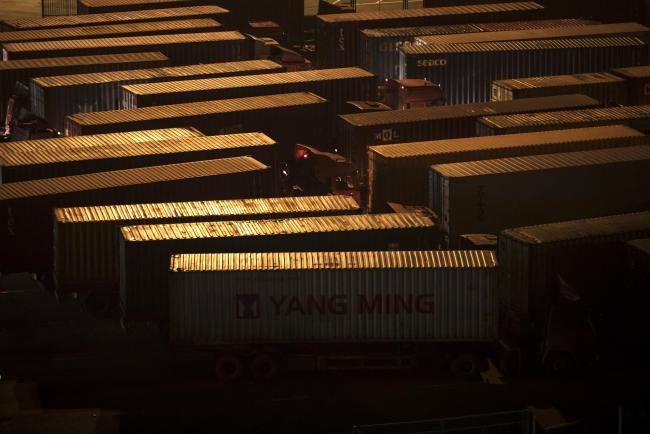(Bloomberg) -- Judging by the market reaction in Asia to China’s latest economic-growth target, a detente with the U.S. on trade can’t come soon enough.
The MSCI Asia Pacific Index fell 0.4 percent to halt a two-day advance as major equity gauges across the region slipped. Stock benchmarks of key trade partners Japan and South Korea led the losses, putting pressure on the rally that restored $3 trillion in Asian equities this year. Chinese stocks fluctuated between gains and losses ahead of the mid-day trading break, while U.S. equity-index futures ticked lower.
China lowered the country’s goal for gross domestic product to a range of 6 percent to 6.5 percent in 2019, released in Premier Li Keqiang’s annual work report ahead of his speech to kick off the National People’s Congress. The lower bound of the target would be the slowest pace of expansion in almost three decades. In an effort to support the economy, Li also announced tax cuts worth 2 trillion yuan ($298 billion) for the year.
A slowing China puts into stark relief just how dependent many of the biggest export-driven countries in the region have become on the world’s second-largest economy, if Tuesday’s moves in Asia stocks are any indication. Total trade with China across Asia was worth some $1.6 trillion in 2017, according to the latest data compiled by Bloomberg, led by Japan, South Korea and Hong Kong -- all markets either flat or in the red now.
Now, it’s not all doom and gloom for China.
Investors have already given the market a vote of confidence this year, pushing $1.5 trillion in value into the stock market so far. As China moves past the trade war, investors will look for more clarity on the longer-term structural issues underpinning its economy and policy makers’ attempts to address those concerns.
Jefferies Financial Group Inc. equity analysts including Laban Yu and Patrick Yuan just returned from a tour of European clients and found that many were “quite receptive” to more bullish views on China, according to a March 4 report.
“Investor consensus appeared to be that China was ready to stimulate and that the economy had or will soon bottom out,” they said. “We pointed out that we had seen the supposed collapse of China’s economic growth at least four times in the last two decades. This time around is the least concerning on record.”
The biggest internal pressure point on China’s economy -- deleveraging after years of debt-fueled growth -- is “healthy, chosen, self-induced and entirely reversible,” while external pressures including the trade war and Federal Reserve tightening have either a limited impact or already fixed themselves, the analysts said.
“Least scary China collapse ever” was their conclusion.
Asia stocks investors are counting on it.
Stock-Market Summary
- MSCI Asia Pacific Index down 0.4%
- Japan’s Topix index down 0.6%; Nikkei 225 down 0.6%
- Hong Kong’s Hang Seng Index little changed; Hang Seng China Enterprises little changed; Shanghai Composite up 0.1%; CSI 300 little changed
- Taiwan’s Taiex index down 0.4%
- South Korea’s Kospi index down 0.5%; Kospi 200 down 0.7%
- Australia’s S&P/ASX 200 down 0.4%; New Zealand’s S&P/NZX 50 down 0.1%
- India’s S&P BSE Sensex Index little changed; NSE Nifty 50 little changed
- Singapore’s Straits Times Index down 0.3%; Malaysia’s KLCI down 0.3%; Philippine Stock Exchange Index up 0.6%; Jakarta Composite down 1%; Thailand’s SET little changed; Vietnam’s VN Index up 0.6%
- S&P 500 e-mini futures little changed after index closed down 0.4% in last session
